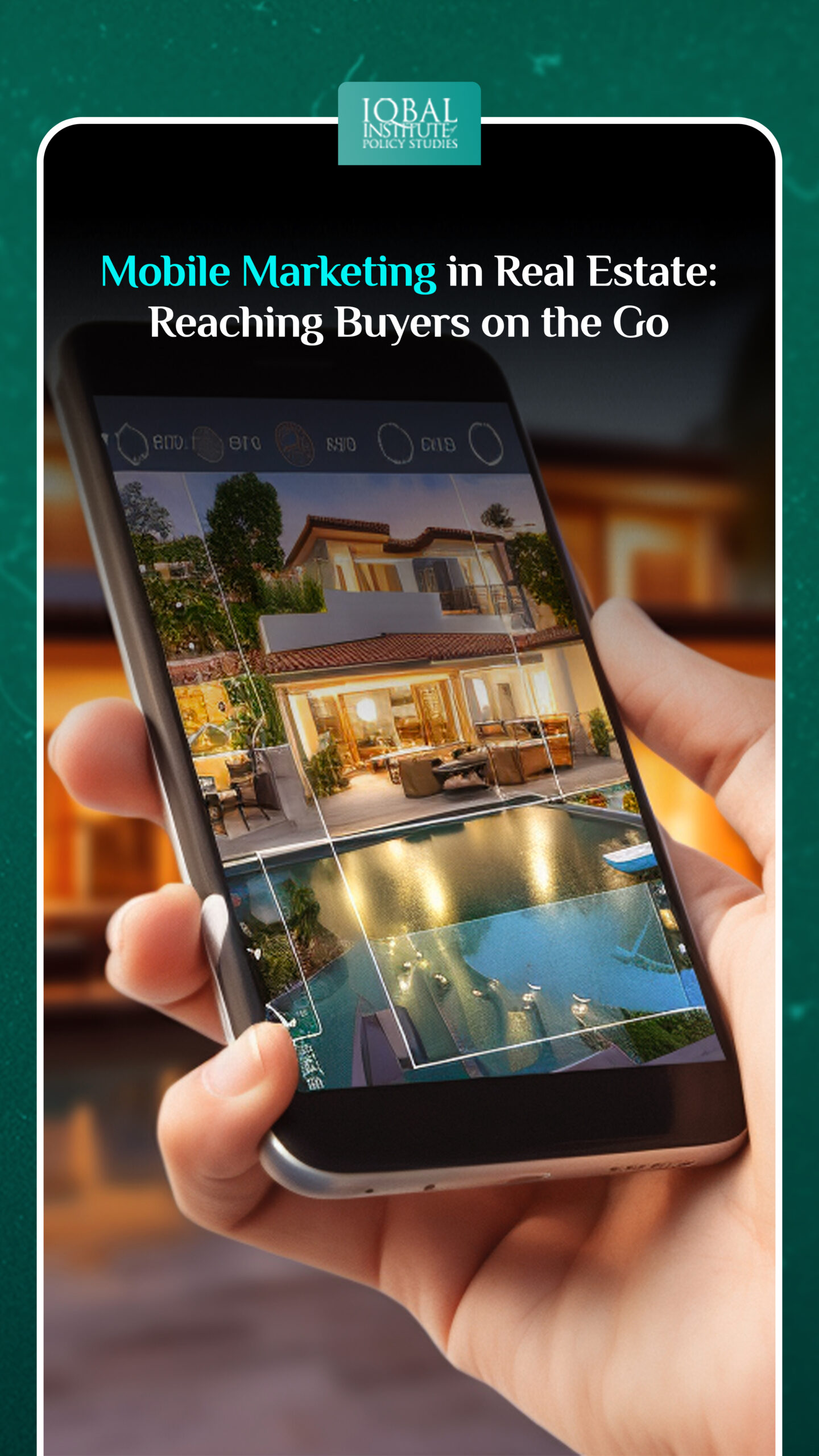In today’s fast-paced world, mobile devices have become an essential part of our daily lives. People rely on smartphones and tablets for communication, information, and entertainment. Real estate professionals must adapt to this mobile-first reality to effectively reach and engage potential buyers who are constantly on the go. Mobile marketing in the real estate industry is no longer optional; staying competitive and connecting with the modern audience is necessary. In this blog, we will explore the power of mobile marketing and how it can help real estate agents, and agencies reach buyers wherever they are.
The Rise of Mobile in Real Estate
According to recent studies, over 60% of real estate searches now originate from mobile devices. The real estate industry has experienced a dramatic transformation with the rise of mobile technology. As smartphones and tablets have become ubiquitous, they have fundamentally changed how potential buyers search for properties, interact with real estate agents, and make informed decisions. The ease and convenience of mobile devices have empowered home seekers to explore listings, view high-quality images, and access vital property information on the go, anytime and anywhere. Mobile-friendly websites and responsive design have become essential for real estate agents and agencies, ensuring their online presence is optimized for seamless navigation and effortless user experiences on various screen sizes.
Furthermore, dedicated mobile apps for real estate have emerged as powerful tools, providing users with personalized property alerts, interactive virtual tours, and instant communication with agents. Location-based marketing leverages geofencing technology to send targeted property notifications when potential buyers are near a listing, making the property search more relevant and efficient. With mobile photography and videography, real estate agents can capture stunning visuals of properties and share them on social media platforms, effectively engaging audiences. SMS and MMS marketing enable direct communication with buyers, delivering timely updates and multimedia content to maintain buyer interest and foster lasting relationships. QR codes are increasingly used on physical marketing materials to access property details and agent contacts quickly. Nevertheless, mobile marketing has transformed how prospective buyers browse listings, read property details, and seek information on the go. As a result, real estate professionals must optimize their marketing efforts to cater to this increasingly mobile-savvy audience.
Mobile-Friendly Websites and Responsive Design
A crucial aspect of mobile marketing is having a mobile-friendly website with a responsive design. A responsive website automatically adapts its layout to fit the screen of the device, whether a smartphone, tablet, or desktop. A poorly optimized website can frustrate users and drive them away, leading to lost opportunities. Real estate agents can provide an optimal user experience by investing in responsive design, ensuring that potential buyers can easily navigate listings and access essential property information on their mobile devices.
Harnessing the Power of Mobile Apps
Mobile apps have become an integral part of agents’ and buyers’ real estate experience. Real estate apps provide a user-friendly interface for property searches, filtering options, and personalized alerts. Agents can also benefit from apps that streamline their workflow, allowing them to manage leads, update listings, and communicate with clients on the go. A well-designed mobile app enhances the overall user experience and increases engagement, resulting in more qualified leads and successful conversions.
SMS and MMS Marketing
Short Message Service (SMS) and Multimedia Messaging Service (MMS) marketing offer direct and immediate communication with potential buyers. Agents can leverage these tools to send property updates, schedule property tours, and share multimedia content like images and videos. However, using these channels judiciously and obtaining explicit consent from recipients to comply with privacy regulations and avoid spamming is crucial.
Location-Based Marketing
Location-based marketing is a powerful strategy for reaching buyers when they are in close proximity to a property of interest. Using geofencing technology, agents can send targeted notifications to mobile users who enter predefined geographic areas. These messages can include property details, open house invitations, or exclusive offers, increasing the likelihood of attracting potential buyers to view the property in person.
Mobile Photography and Videography:
Mobile devices have evolved to offer high-quality cameras and video recording capabilities, enabling real estate agents to capture stunning visuals of properties. Social media platforms like Instagram and Facebook have seen an influx of visually appealing property listings through captivating photos and virtual property tours shot on mobile phones. These visuals play a significant role in attracting potential buyers and encouraging them to take the next steps in the buying process.
Mobile Advertising and PPC Campaigns
Mobile advertising through platforms like Google Ads and social media can effectively target mobile users based on their search behavior, interests, and demographics. Real estate agents can use Pay-Per-Click (PPC) campaigns to display ads for specific property types or locations, driving traffic to their mobile-friendly websites or landing pages. A well-optimized mobile ad campaign can significantly enhance lead generation and brand visibility.
Leveraging QR Codes
Quick Response (QR) codes are becoming more prevalent in real estate. Placing QR codes on physical marketing materials such as yard signs, brochures, and flyers allows potential buyers to quickly access additional property information and contact details using their mobile devices. QR codes bridge the gap between the physical and digital worlds, making it convenient for buyers to access property details instantly.
Conclusion
In an era where mobile devices dominate our daily lives, mobile marketing has become an indispensable tool for real estate professionals. Embracing mobile-friendly websites, mobile apps, SMS marketing, location-based strategies, and mobile advertising can help agents effectively reach and engage buyers on the go. By staying ahead of the mobile marketing curve, real estate agents and agencies can build stronger connections with their target audience, drive lead generation, and ultimately achieve tremendous success in a competitive market.
This article is written by Radma Nouman. Radma is a research analyst at the Iqbal Institute of Policy Studies (IIPS).



Leave a Reply